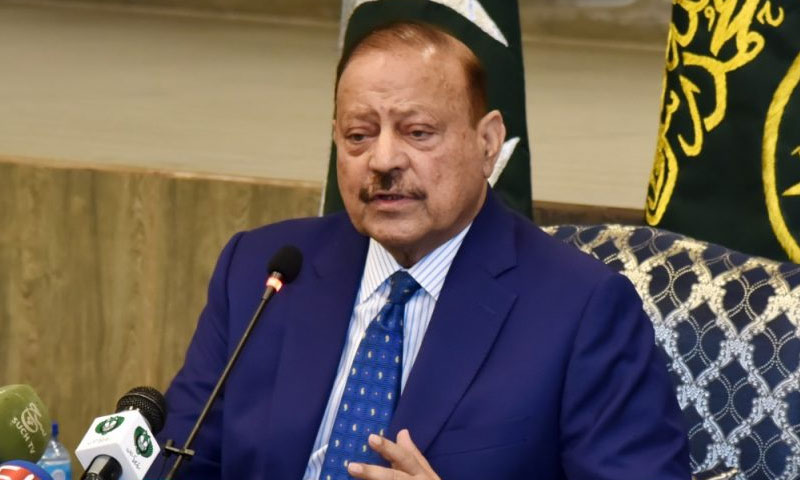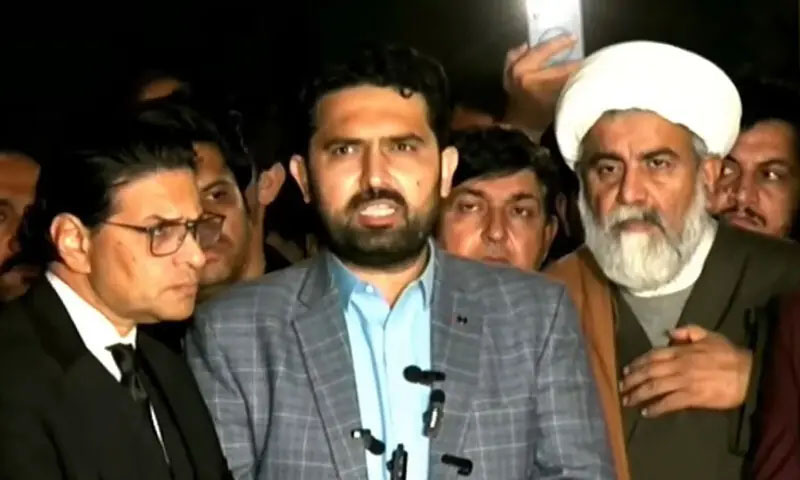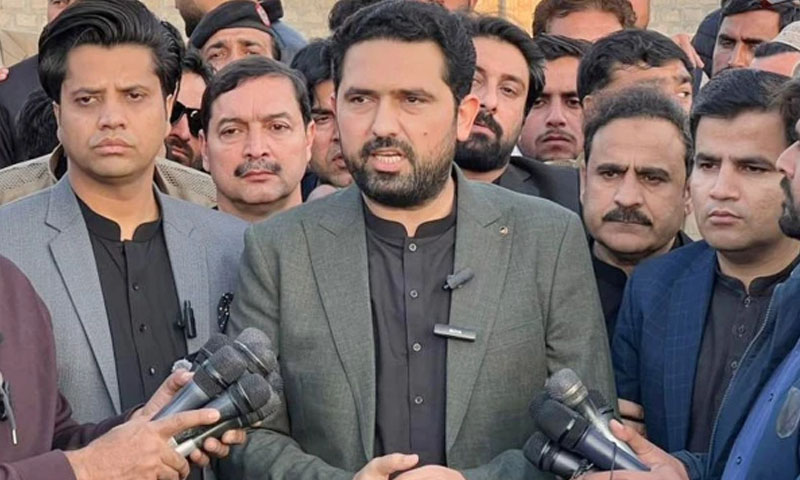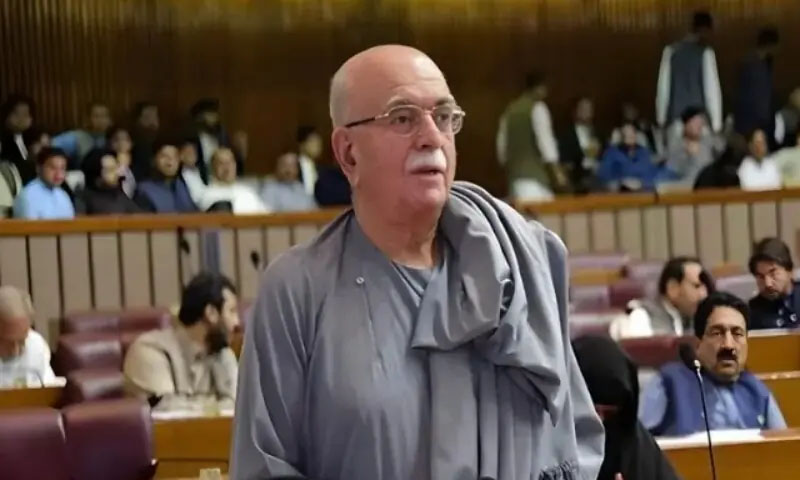- Web Desk
- Jan 31, 2026
Bill on ‘integrated digital IDs’ presented in National Assembly
-

- Web Desk
- Dec 16, 2024

ISLAMABAD: Minister of State for Information Technology and Telecommunications Shaza Fatima Khawaja on Monday presented the “Digital Nation Pakistan Bill 2024” to establish integrated digital IDs for citizens, aiming to centralise social, economic, and governance data.
The proposed bill seeks to help transform Pakistan into a fully digital nation, enabling advancements in digital society, economy, and governance.
The federal cabinet had approved the draft bill in June as part of broader efforts to digitise the economy and promote e-governance.
PTI’s D-Chowk Narrative Dismissed as False
During the session, Information Minister Atta Tarar criticised the Pakistan Tehreek-e-Insaf (PTI) for spreading “misinformation” about the D-Chowk incident.
“The PTI is fabricating the narrative about the number of casualties, which keeps changing to avoid accountability,” Tarar said. He accused the party of using inconsistent figures, questioning the validity of its claims.
Tarar also addressed the opposition’s criticism of Pakistan International Airlines (PIA), urging them to reflect on their performance during their tenure.
Congratulating the nation on the restoration of PIA’s flights to Europe, he noted, “When the PIA needed attention, PTI leaders were busy mobilising protests instead of addressing critical issues.”
PTI Alleges Government Brutality
PTI Member of National Assembly Zartaj Gul read out a list of alleged casualties at the D-Chowk protest, accusing the government of excessive use of force.
“Unarmed people were shot at after cutting off the electricity. Bodies lay unattended for days,” she claimed.
Gul also alleged that PTI founder Imran Khan was being held in solitary confinement, barring him from meeting visitors.
She reaffirmed the party’s commitment to democracy, stating that while they have formed a negotiation committee, they will not compromise on the sacrifices of their supporters.
“Journalists covering the D-Chowk protests were also abducted,” she alleged.
Parliamentary Discussions on Railways, TB Cases
During the session, presided over by Deputy Speaker Ghulam Mustafa Shah, a range of other issues were also discussed.
Dr Shahida Rehmani raised concerns over the deteriorating condition of railway tracks, while Parliamentary Secretary for Railways Muhammad Usman assured that the completion of the ML-1 project would boost revenue and reduce accidents.
During the question-answer session, Zahra Wadood Fatemi questioned the government’s efforts against rising tuberculosis (TB) cases.
Parliamentary Secretary Nelson Azeem responded that TB cases were increasing at an alarming rate, with 9,312 cases registered in Islamabad and 1.8 million nationwide.
He assured the House that free treatment is available at both public and private hospitals.
Resolution on APS Attack Presented
The National Assembly witnessed intense discussions on Monday as members reflected on the 2014 Army Public School (APS) tragedy.
A resolution commemorating the victims was presented by PPP’s Shazia Marri, calling for strengthened security in educational institutions and the observance of December 16 as a National Day.
The resolution emphasised the bravery of APS students, condemned the attack as an assault on Pakistan’s soul, and expressed solidarity with the victims’ families.
Accountability Demanded for Perpetrators
Pakistan People’s Party lawmaker Abdul Qadir Patel highlighted the lack of accountability in past tragedies.
“We must identify those who facilitated, supported, and released the culprits,” he said, referencing the controversial release of Ehsanullah Ehsan, a former spokesperson of the banned Tehreek-e-Taliban Pakistan.
“Our national attitude of forgetting too quickly is troubling,” he said, accusing authorities of negotiating with those involved in heinous acts, including the APS tragedy.
Call for Justice and Systemic Reforms
Jamiat Ulema-e-Islam-Fazl leader Maulana Abdul Ghafoor Haideri called for robust measures to prevent future incidents, criticizing state institutions for their perceived inefficacy.
Sunni Ittehad Council chief Sahibzada Hamid Raza lamented Pakistan’s failure to deliver justice for victims of various tragedies.
“Which murderer in this country has been punished? Our martyrs have been mocked,” he said, questioning the credibility of both the assembly and security institutions.
Hamid Raza also criticised the selective approach to political negotiations, urging inclusion of all stakeholders.
“You talk about excluding Imran Khan, but why not Nawaz Sharif or Shehbaz Sharif? We will not negotiate without our leader,” he said, referencing the PTI founder’s incarceration.
Demand to Declassify Hamoodur Rahman Commission Report
PTI lawmaker Latif Khosa called for making the Hamoodur Rahman Commission report public, demanding accountability for the 1971 fall of Dhaka.
“Why haven’t the perpetrators been punished yet? Justice delayed is justice denied,” he said, also referencing judicial failures in cases involving former leaders like Zulfikar Ali Bhutto and Benazir Bhutto.
Khosa urged the formation of judicial commissions to investigate recent incidents, including those of May 9, February 9, and November 26. “We are not seeking to tarnish Pakistan’s reputation; we seek justice,” he emphasized.
Achakzai Highlights Regional Grievances
Pashtunkhwa Milli Awami Party (PKMAP) leader Mahmood Khan Achakzai criticised the lack of attention to provincial injustices, citing the deaths of 150 people in Kurram Agency. “Why has this assembly not even passed a condemnation resolution for those killed?” he questioned.
Achakzai demanded immediate action, including a delegation to visit the bereaved families in Kurram. He also warned against silencing opposition voices, declaring that his party would launch a movement against the government if their grievances were ignored.
During Achakzai’s speech, members of the Pakistan Muslim League-Nawaz and Pakistan Tehreek-e-Insaf exchanged heated words.




